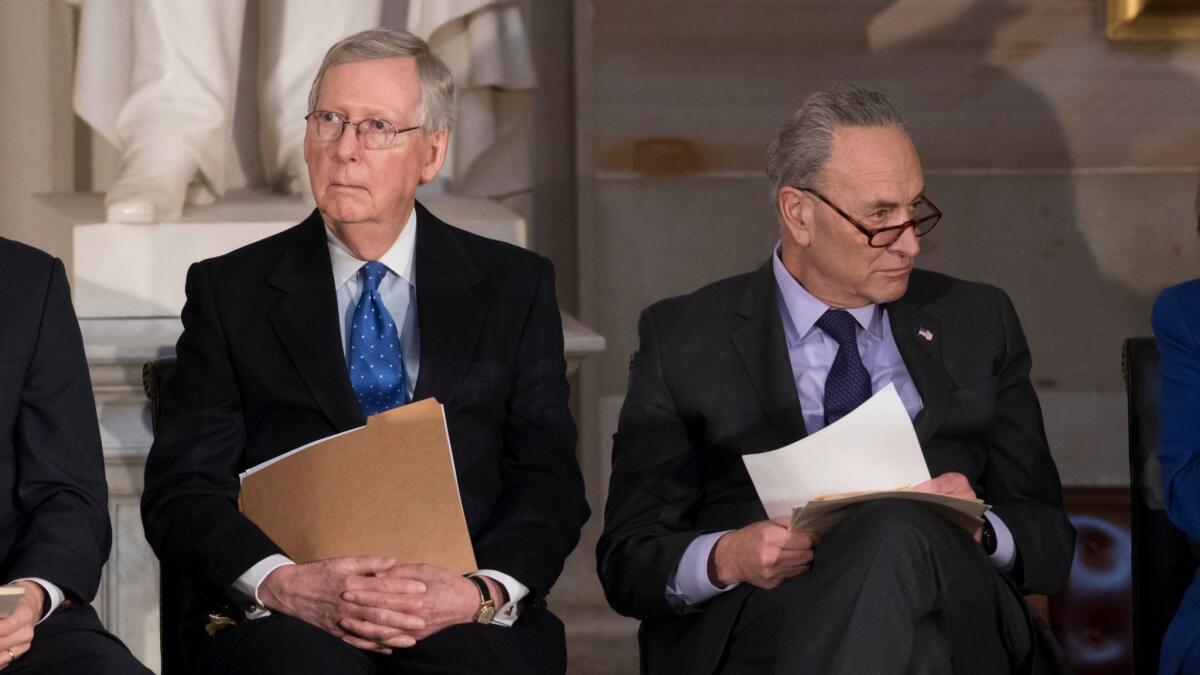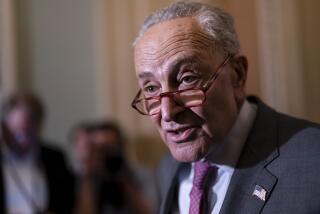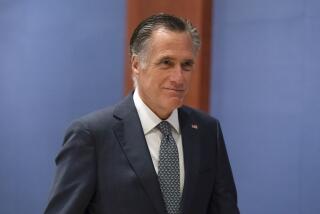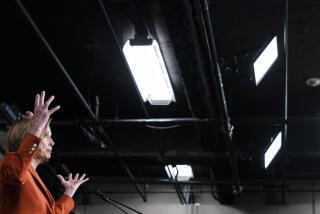Mitch McConnell is finally ready to pass a COVID relief bill. It shouldn’t have taken this long

- Share via
More than eight months after Congress passed a massive coronavirus relief bill, lawmakers are closing in on a deal for a long-awaited follow-up: a roughly $900-billion package that would aid struggling small businesses, renters, workers and schools, while also pumping more money into fighting COVID-19.
What took them so long?
Granted, it’s routine for Congress to leave important work for the last minute — and, sadly, not to get things done at all. But in the early days of the pandemic, lawmakers moved rapidly and across party lines on a series of major coronavirus measures.
Then, after passing the $2-trillion CARES Act in late March, they suddenly lost their bipartisan momentum, even though it was clear in the summer and fall that much more help was needed.
Schools struggled with the high cost of adapting to the pandemic. Businesses faced not only higher costs but in many cases also sharp revenue losses caused by local pandemic-related restrictions on their activities. Healthcare workers still ran out of protective equipment. Coronavirus testing and tracing programs couldn’t meet the demand.
Through it all, Senate Republicans — ostensibly concerned about adding to a federal deficit they had inflated by passing huge tax cuts and burgeoning defense budgets — balked at spending more. House Democrats approved a $3-trillion relief package in May; Senate Republicans countered with a $500-billion proposal in September.
Leaders of the two parties also dug in their heels over provisions that the other side couldn’t abide. Senate Majority Leader Mitch McConnell (R-Ky.) demanded a sweeping liability shield to protect businesses, hospitals and other organizations from COVID-19-related lawsuits by consumers and employees, while top Democrats wanted tens of billions of dollars in aid to state and local governments.
There was a clear middle ground on both of those issues. Congress could create a liability shield tied to the pandemic while also providing an alternative way for people sickened through negligence to be compensated. And aid to states and cities could be targeted to the costs they’ve incurred in battling the pandemic without bailing out troubled public worker pension funds.
The bigger problem was that McConnell felt no pressure to negotiate, leaving Democratic leaders to try to cut a deal with the Trump administration. And the erratic and unfocused dealmaker in chief couldn’t decide in the weeks leading up to the election whether he wanted a big bill, a more modest one or none at all.
It took groups of more moderate members of the House and Senate to highlight a route to a deal. The bipartisan Problem Solvers Caucus in the House started offering compromise proposals in September, eventually joining moderates in the Senate behind a short-term, $908-billion plan in early December.
It’s become a fact of life in the sharply divided and hyperpartisan Congress that the heavy lifting often gets done by informal groups of results-oriented lawmakers. Unlike their leaders, they’re not focused on trying to help their party maintain or win control of their chamber.
Still, the deal that’s emerging wasn’t a triumph of compromise but rather a failure to find consensus. McConnell offered to drop his “red line” demand for a liability shield in exchange for Democrats’ abandoning their demand for a state and local government bailout. The package would still send billions of dollars to states and cities, but in a highly targeted way — for example, to support COVID vaccinations, testing and contact tracing.
And ultimately, what brought McConnell to the table was the calendar. Unemployment benefits for nearly 12 million idled American employees and gig workers are due to expire by the end of the year. With claims for jobless benefits rising again as the third wave of the pandemic crests, it would be both inhumane and economically irresponsible to rein in spending on unemployment insurance.
We’d like to believe that the looming end to extended unemployment benefits was enough to prod McConnell into action. But the negotiations this week might also have been triggered by the looming end of the terms of Georgia’s two Republican senators, David Perdue and Kelly Loeffler, who will face Democrats Jon Ossoff and the Rev. Raphael Warnock in runoffs Jan. 5. Both Republicans have come under fire for opposing the benefits provided in the CARES Act, and if they lose in the runoffs, Republicans will lose control of the Senate.
Whatever the motivation, it’s good to see a compromise in the works. Congress — and the people it represents — can’t afford to adjourn with this task left unfinished.
More to Read
A cure for the common opinion
Get thought-provoking perspectives with our weekly newsletter.
You may occasionally receive promotional content from the Los Angeles Times.









